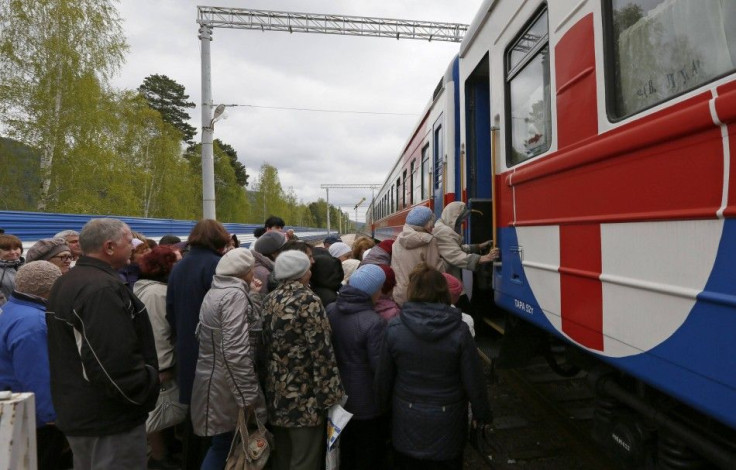Canada Think Tank Seeks Fresh Enquiry Into Lac Megantic Train Tragedy: Suspects Official Report As Cover Up

The demand for a fresh enquiry into Lac-Mégantic Train disaster in Canada is gaining momentum. Leading Think Tank, the Canadian Centre for Policy Alternatives (CCPA) released its own findings about the tragedy and called for a new, impartial probe. The Transportation Safety Board, which probed the accident, is expected to submit the report on August 19.
According to Ca News report, the CCPA raised strong concerns about the anticipated report by the Transportation Safety Board. The watch dog doubts that the TSB report may become an exercise in covering up the failures of the government regulatory agencies.
Worst Rail Disaster
Bruce Campbell, Executive director of CCPA said that the reluctance to go hard on senior officials with the Transport Canada is already evident. He told CBC News that the worst rail disaster in a century deserves a comprehensive inquiry.
The train tragedy happened in July 2013. It was caused when unmanned tanker cars raced downhill and derailed with loads of crude oil and the fuel exploded in the heart of Lac-Mégantic, Quebec and killed 47 people and injured many.
The CCPA came out with its own report, ahead of the TSB report. It justified the step saying it smells a doctored report from TSB, given the statements already made by Transport Minister Lisa Raitt blaming the individuals and companies while exonerating the regulatory bodies.
Official Failures
The watch dog in its report identified 8 key failures of the regulatory body that contributed to the tragedy. Some of them include,
The Transportation Safety Board is not an independent body as the members are appointed by the government and serves at its pleasure.
According to Campbell, all evidence so far points to the failure of Transport Canada in not doing its job and taking responsibility for the weaknesses in the regulatory regime. This was further overburdened by a lack of oversight.
The CCPA report squarely blames Transport Canada for the problems that contributed to the tragedy. According to the watch dog,
Transport Canada is guilty of
- Following vague rules for railway companies that waived violations
- Permission of one-man crews on locomotives
- Overlooking TSB concerns on the safety of DOT-111 tanker cars
- Poor testing and disregard for the explosiveness of Bakken crude oil
Campbell argued that nothing short of a fully independent public inquiry will be acceptable irrespective of the conclusions in the TSB report.





















